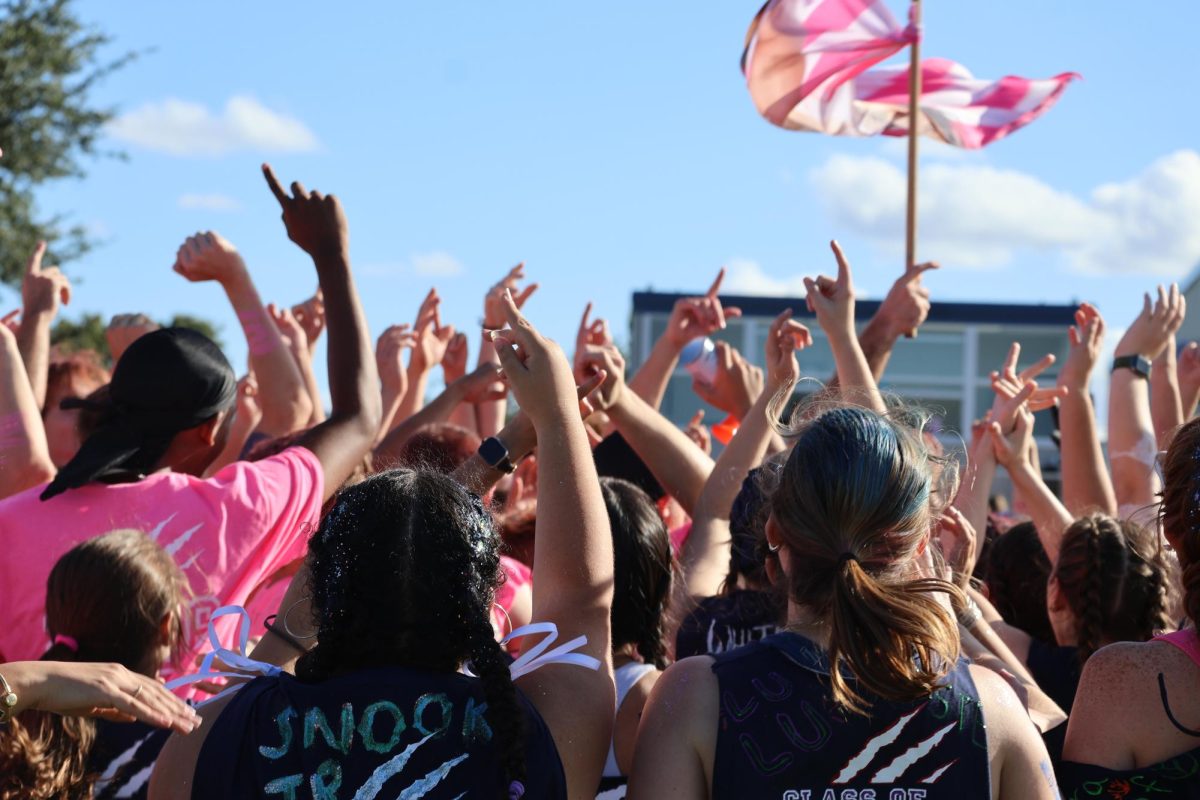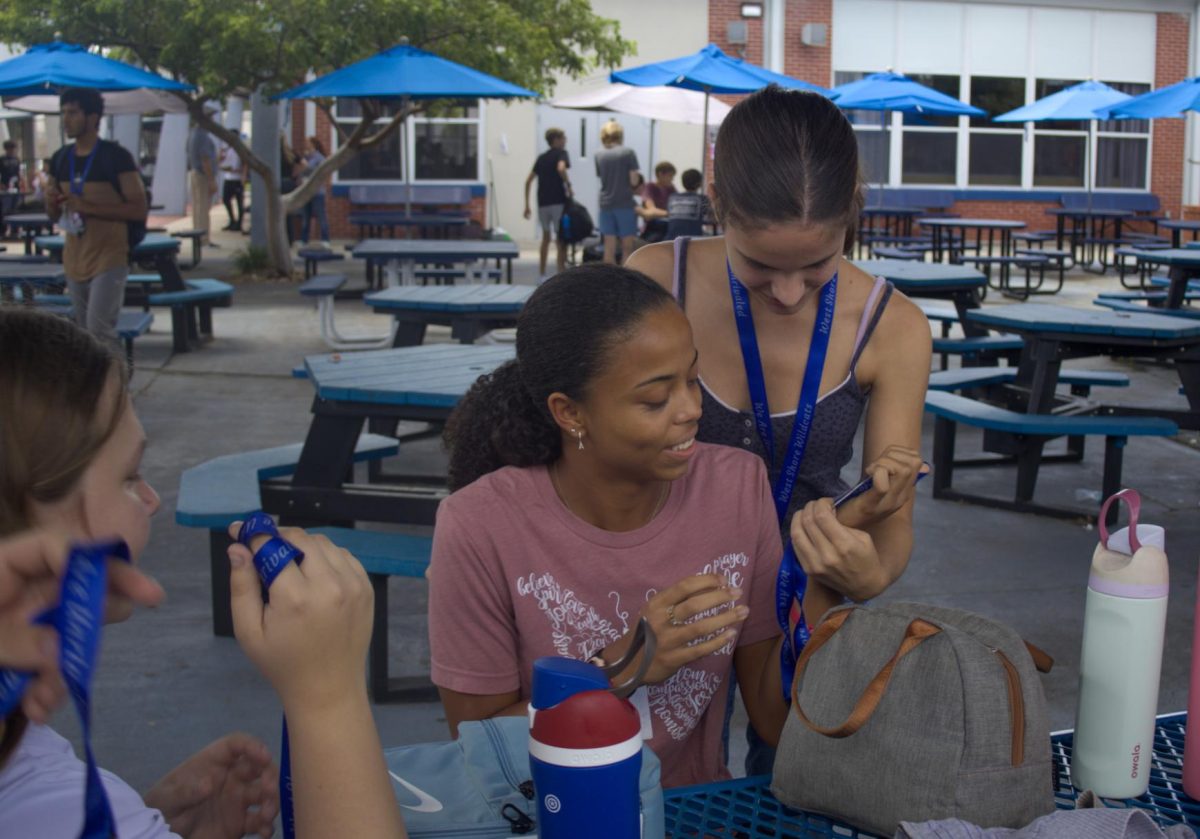Students react to proposed gun-law changes
April 22, 2019
Valentine’s Day marked one year since the deadliest shooting in Florida took place at Marjory Stoneman Douglas High School in Broward County, a mere two-hour drive from West Shore. Shortly after the Parkland shooting, March for Our Lives, a student-led demonstration to increase gun-violence awareness and support gun control, took place in Washington. It quickly became an established organization with chapters throughout the nation and in particular, one here in Brevard County that senior Anna Wilder joined last summer.
Three weeks after the shooting, Gov. Rick Scott signed into law the Marjory Stoneman Douglas High School Public Safety Act, which provided additional funding for student resource officers, and improved security and mental-health programs on school campuses.
However, this may all come under severe revision in the legislative session this month. As of Feb. 11, 50 bills had been prefiled for the session that address firearm regulation, including one from Florida Rep. Walter “Mike” Hill that would repeal many of the provisions passed into law post-Parkland which he believes are an “infringement upon the Second Amendment of our constitution.” The bill includes returning the legal age to purchase firearms to 18 from 21, weakening the three-day waiting period to purchase a firearm by having it required for handguns only, re-legalizing bump stocks (which were used in the Las Vegas Shooting in 2017) and repealing risk-protection orders which gave judges and law enforcement the power to seize guns from Floridians who pose a danger to themselves or others.
“I don’t think the first three should be repealed,” said junior Kyle Johnson, who identifies as a conservative. “The three-day waiting period is a good way to uncover any bad stuff in somebody’s history. The law banning bump stocks is a good thing too because it can turn a semi-automatic weapon into an automatic. But with regards to the age to buy guns, I think if you’re allowed to buy cigarettes, nicotine, all the stuff at 18, and if you’ve gone through the proper training to purchase a firearm, I think that’s fine.”
During Wilder’s tour to help promote MFOL’s message, she discovered their position in the current political atmosphere regarding gun regulation is often overlooked by opposers who believe “MFOL is just a group of teens who are trying to remove all rights to guns.”
“Some of the people I went on tour with owned guns themselves,” Wilder said. “They are only asking for sensible gun laws, ones that keep us safe. If you’re a law-abiding citizen and have a permit and following the rules, we have no problems with people having guns. Yet the impression they get is that we are looking to take it all away.”
The movement is in support of universal background checks, a ban on high-capacity magazines, as well as extreme-risk protection orders, just to name a few, which are included in the Democratic Party’s push for stronger gun regulation, but also directly opposed by Republican representatives, such as Hill.
Despite some lawmakers’ move to repeal forms of gun regulation, others are working to strengthen it. On Feb. 12, Florida Democrats revealed several bills that will work to ban assault-style weapons and large-capacity magazines.
AR-15’s are not assault rifles and will therefore not be included in the ban, a common misconception according to Wilder. According to the annual report “Mass Shooting in The United States” published by Everytown for Gun Safety, mass shootings involving the use of high-capacity magazines resulted in more than twice as many fatalities and 14 times as many injuries on average compared to those that did not.
Democratic lawmakers also have prefiled bills that would institute universal background checks and red-flag legislation.
An October 2018 Pew Research Center poll found that 85 percent of Americans support requiring a background check on all gun buyers, including 91 percent of Democrats and 79 percent of Republicans. Currently, background checks are not required for those purchasing a gun from unlicensed vendors, such as the online site armlist.com.
Red flag legislation allows for family members of an individual to seek out Extreme Risk-Protection orders from judges if they believe said individual poses a risk and should consequently have their firearms seized and temporarily be prohibited from purchasing more.
According to the annual report “Mass Shooting in The United States” published by Everytown for Gun Safety, of the 173 mass shootings in the U.S. from 2009 to 2017, the shooter exhibited warning signs indicating he posed a danger to himself or others before the shooting in half of the total cases. Thirteen states have enacted red flag laws to prevent potential mass shooters and 29 states, along with Washington DC, have considered red flag legislation in the past year.
“I feel that this is a step in the right direction because the gun control we have now clearly isn’t working,” said junior Shelbi Winslow, who identifies as a liberal. “This could help with shootings like the one in Parkland because if this act had been a law, then that shooting could have potentially been prevented.”


![Sophomore Isabelle Gaudry walks through the metal detector, monitored by School Resource Officer Valerie Butler, on Aug. 13. “I think [the students have] been adjusting really well," Butler said. "We've had no issues, no snafus. Everything's been running smoothly, and we've been getting kids to class on time.”](https://westshoreroar.com/wp-content/uploads/2025/08/IMG_9979-1200x800.jpg)










































